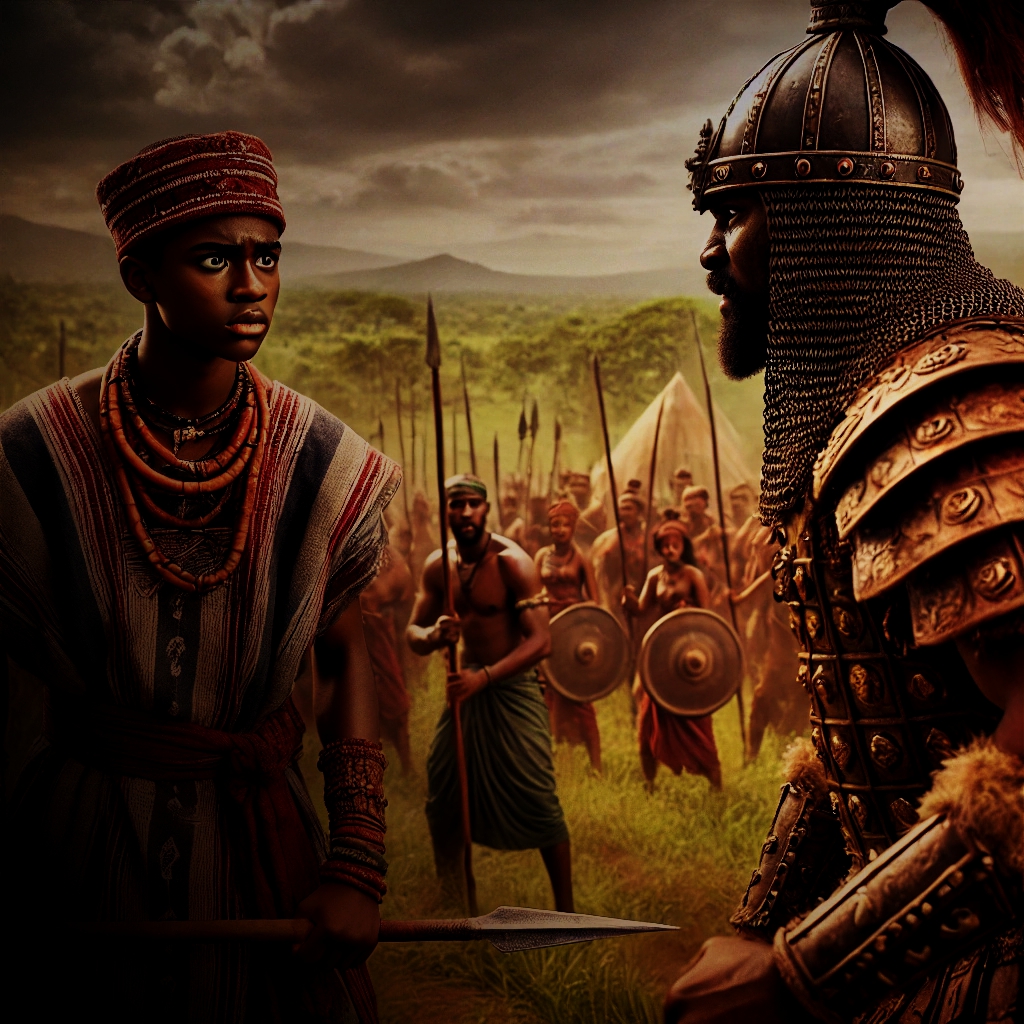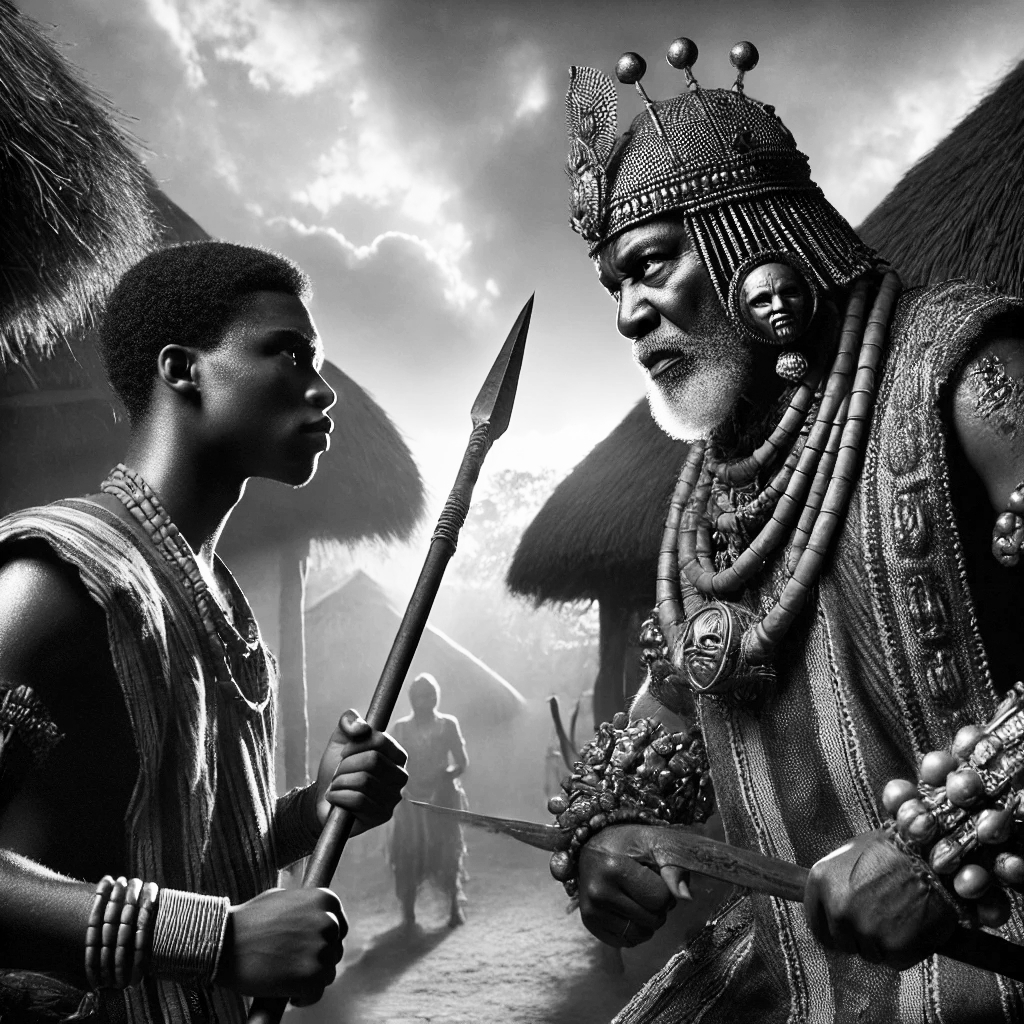Film Review: Jagunjagun by Femi Adebayo - A Yoruba Epic of War, Honor, and Legacy
Few recent films in the Yoruba film industry have received as much praise and attention as Femi Adebayo's 2023 release Jagunjagun ("The Warrior"). In this gripping drama, Adebayo, who is well-known for his work in Yoruba-language films, offers a new and potent perspective on Nigeria's rich culture and history. Jagunjagun captivates viewers with its captivating plot, genuine costumes, and set design, engrossing them in the timeless Yoruba themes of bravery, sacrifice, and lineage.

The Plot: A Journey of Ambition and Awakening
Jagunjagun tells the tale of a young man named Gbotija (Ladeef Adedimeji), who aspires to be a strong warrior in a society where a man's value is determined by his ability to fight and wield power. Due to his aspirations, Gbotija joins the ranks of Ogundiji, a vicious and feared warlord (played by Femi Adebayo himself). Ogundiji is a multifaceted figure who is both a feared warrior and a cruel leader who demands devotion and allegiance from his followers. Ogundiji commands respect by power and fear, and he believes that the only ways to be honoured are through strength and control.
However, Gbotija soon learns that his ideal of becoming a warrior is very different from the actual situation. He is forced to face the difficulties of honour, loyalty, and aggression as a result of the toll that authority and the cruelty of war have on him. Gbotija is torn between his ambition and his conscience as he fights to maintain his moral compass in the face of his warlord's extreme worldview. The film examines the difficulties of upholding one's morals and integrity in a society that prioritises strength over all other qualities via Gbotija's journey.
Themes of Honor, Legacy, and the Cost of Ambition
Jagunjagun is fundamentally a tale of ambition and the internal struggle that frequently goes along with it. Gbotija's need for respect and recognition drives him to pursue a career as a warrior, but as he learns more about Ogundiji's culture, he comes to see that his chosen course is replete with moral lapses and psychological wounds. The movie clarifies how ambition may result in a loss of identity and self-worth when it is pursued dishonestly. Even in its historical and cultural context, the story is incredibly accessible because of Gbotija's challenges, which reflect the tough decisions many people must make in their quest for greatness.
The significance of legacy and the ideals we instill in future generations are also discussed in the movie. The idea of "oruko rere," or a good name or legacy, is highly valued in Yoruba society, and Jagunjagun explores this through its characters' aspirations to establish themselves. But the movie questions the idea that control and power are the only foundations of legacy. True legacy, according to Gbotija's character development, stems from honesty, bravery, and the influence we have on other people's lives—a lesson that speaks to everyone.
Production Quality: A High-Caliber Yoruba Cinematic Experience
Jagunjagun is notable for its excellent production value, which raises the bar for Yoruba-language films. The story's epic scope is increased by the cinematography's ability to convey the majesty and vastness of the African terrain. In order to immerse spectators in a world that feels both familiar and majestic, the costumes and set design are painstakingly created to reflect the Yoruba traditional clothes and ancient locales. The film is both aesthetically spectacular and culturally relevant since it skilfully combines traditional narrative with contemporary cinematic methods.
The characters are brought to life by the meticulous attention to detail in the makeup and costumes, which gives their identities and personalities a genuine feel. From Gbotija's modest clothing to Ogundiji's warrior armour, which represents his transformation from an eager warrior-in-training to a man of contemplation, the clothes in particular reflect the characters' personalities and hierarchy. Yoruba drums and chants magnify important sequences to pull the audience into each moment, while the sound design and music also significantly contribute to the film's intensity.
Cast Performance: Bringing Depth and Emotion

The performance of Ogundiji by Femi Adebayo is quite powerful. The contradictory essence of his character—a guy who is both feared and admired, whose power belies a complex, occasionally brutal ideology—is captured by Adebayo's subtle performance. As Gbotija, Lateef Adedimeji gives a superb performance as well, capturing the inner turmoil and development of the young guy. The spectator is kept interested in his destiny by the genuine portrayal of his emotional journey, which includes his excitement, disappointment, and eventual self-realization.
The universe of Jagunjagun feels complex and multi-layered thanks to the supporting cast, which includes Odunlade Adekola and other well-known Yoruba performers. Their interactions enhance the film's exploration of traditional Yoruba values by bringing to light themes of loyalty, sacrifice, and the moral quandaries that accompany authority.
Final Thoughts
*Jagunjagun is more than just a movie; it's a contemplative examination of eternal topics and a celebration of Yoruba history. Femi Adebayo has created a film that respects Nigerian culture while tackling universal issues of legacy, ambition, and morality. Jagunjagun surpasses the limits of Yoruba film with its compelling plot, excellent production value, and stirring performances, appealing to viewers in Nigeria and abroad.
Jagunjagun is a must-watch for anybody with an interest in epic storytelling, cultural history, and the intricacy of human aspiration. The film serves as a reminder of the decisions we make in our quest for greatness and the ideals we abandon, in addition to showcasing the beauty of Yoruba tradition.